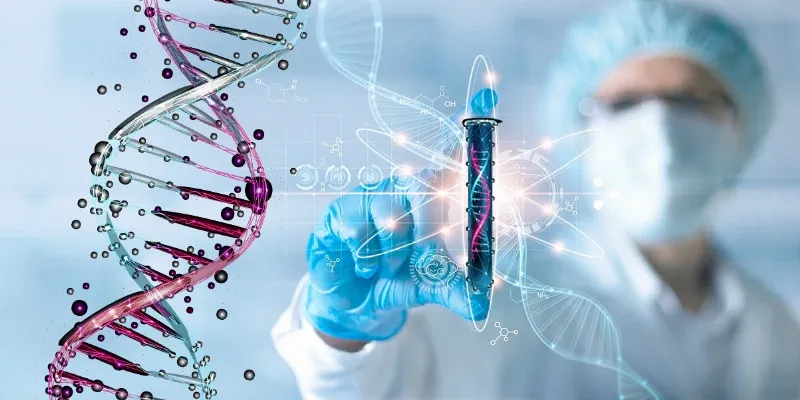Genetic Testing Boosts Safety, Reduces Chemotherapy Side Effects in GI Cancer

9 August 2025
A Penn Medicine study has shown that tailoring chemotherapy doses based on genetic testing can significantly improve safety for gastrointestinal (GI) cancer patients. Screening for variants in two key genes, enabled oncologists to adjust treatment before it began, cutting severe toxicities from 65% to 38% compared with standard dosing, without compromising efficacy.
Published in JCO Precision Oncology, the research offers a practical approach to reduce treatment-related hospitalizations and prevent potentially fatal toxicities.
The study’s lead author, Sony Tuteja, PharmD, MS, director of Pharmacogenomics at the Penn Medicine Center for Genomic Medicine, stated that genetic testing is both feasible and critical for patient safety. “With up to 1,300 deaths in the U.S. each year due to side effects from one of the most common forms of chemotherapy drugs, we’ve worked to make testing fast and actionable, getting results in about a week to help doctors make safer treatment decisions.”
Genetics Matters in Chemotherapy Safety
For decades, GI cancer chemotherapy has followed standardized dosing guidelines. But for patients carrying certain genetic variants, those doses can be dangerously high.
The DPYD gene encodes an enzyme that metabolizes fluoropyrimidines, such as 5-fluorouracil and capecitabine. Between 5% and 8% of individuals carry DPYD variants that slow drug breakdown, leading to toxic accumulation and side effects such as bone marrow suppression, mucositis, and hand–foot syndrome.
The UGT1A1 gene is responsible for clearing irinotecan. Variants can delay metabolism, raising the risk of neutropenia and severe diarrhea. Identifying these variants in advance allows clinicians to lower initial doses while maintaining therapeutic benefit—a strategy common in Europe but less frequently adopted in the United States.
The Penn Implementation Trial
The trial enrolled 517 GI cancer patients across three Penn Medicine cancer centers; 288 underwent pre-treatment genetic testing. Median turnaround for results was 10 days, with 57% available before the first chemotherapy cycle. Among the 16 patients carrying actionable variants, 69% had results in time for genotype-guided dose reductions.
Compared with a biobank-matched cohort on standard dosing, the tested group experienced:
- Severe treatment-related adverse events in 38% of patients vs. 65% in the standard-dose group.
- Treatment modifications in 38% vs. 76%.
- Treatment discontinuations in 31% vs. 47%.
While the difference in severe TRAE rates did not reach statistical significance (P = .123), the reduction in treatment modifications was significant (P = .028), underscoring the practical benefit of the approach.
From Research to Routine Care
Each year, nearly 290,000 Americans are diagnosed with GI cancers, including colorectal cancer—the nation’s third most common cancer. Chemotherapy remains a cornerstone of treatment, yet it is also a leading cause of treatment-related hospitalization and, in some cases, death. Estimates suggest up to 1,300 U.S. deaths annually could be linked to fluoropyrimidine toxicity alone.











Comments
No Comments Yet!